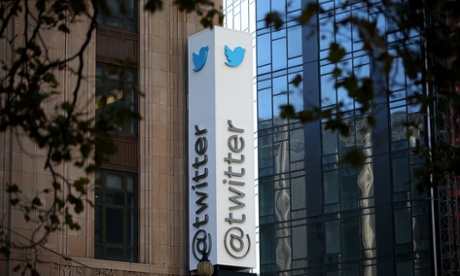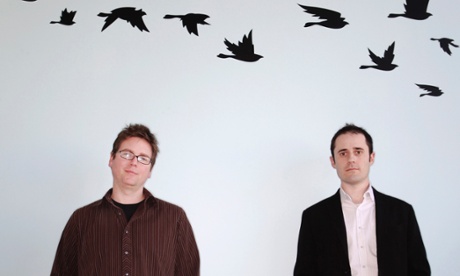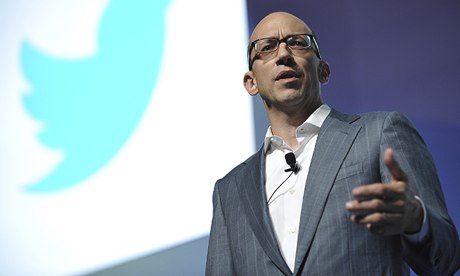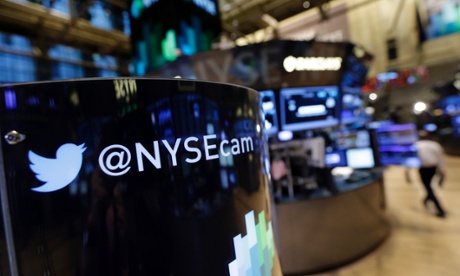Confused by the circus around America's latest Silicon Valley crush? Here's your guide to how public offerings work

Yay! Twitter is going public tomorrow!
Why are you so excited?
What do you mean? Of course I’m excited. There are news stories everywhere! The company is worth $13bn! There are timely debates about whether there’s a tech bubble! There’s anexcitement industry around this IPO! How can I not be excited?
Yeah, that’s called “hype”.
Oh. Okay, so you tell me: should I care about the Twitter IPO?
The truth is, you don’t really need to …
Okay, gotta go, bye.
No, wait. You don’t need to care, unless you’re interested in one of three things: either buying shares in the company (which you probably can’t do, because they’re not sold to proles); opining on the health of the stock market and tech industry; or learning about Twitter itself.
Hmmm. I’m not really into any of those things. No offense! So, why do I keep hearing that IPOs are important?
IPOs are important – for the company involved and its employees. It means maturity, and it usually means a lot of money is on the way. When a company decides to an IPO, it’s a big deal. It means it’s ready to play in the big leagues: listing its stock for the first time on a big exchange, inviting regulators to look at its books, and having stock that it can use to buy other companies. That takes a lot of preparation. It’s often six months between the time a company files to say it’s going to an IPO, and the day the IPO actually happens.
Six months? Wow.
Sometimes, it’s even longer – nine months, or a year. The whole world can change between the time a company says it wants to go public and when it actually does. As an example: during the last tech boom, hundreds of companies filed to go public in late 1999. By the time the tech bubble popped in April 2000, those companies were out of luck: no one wanted to buy their shares, they didn’t go public, and many were sold or shut down.
That sounds risky. What takes so long?
There’s so much to do in an IPO! Here’s the first thing to understand: a share of a company is an ownership stake. When you buy a share of a company, you own a little piece of it.
BRB, I think I have some shares of Microsoft in my mutual fund and I want to give them a piece of my mind. I’m an owner! They have to listen to me!
Well, not so fast. It’s true you’re an owner, but the harsh truth is that you’re too small to make a real difference. Size means power. The mutual fund has more shares of Microsoft, so it has more power. It can use its shares to vote at the annual shareholder meeting. It can complain if Microsoft’s stock value drops!
That’s the center of a whole movement called “corporate governance” where stockholders try to get companies to run themselves better, or at least more profitably. But even that power is limited. Really companies are run by executives, and shareholders, even though they are owners, have limited power because it’s divided among so many people and institutions

Oh. So Microsoft doesn’t really care what I think. So, sorry, you were explaining why IPOs take so long.
Well, when companies decide to sell stock – and invite other owners – the Securities and Exchange Commission wants to make sure people aren’t buying a lemon. When a company like Twitter files for IPO, it enters something called the “registration period”. That means it’s registered for an IPO, the same way you would register for classes, but that the IPO hasn’t happened yet.
Why does this registration period even matter?
Mainly because a company can’t talk publicly about its business during its registration period.
What? A company that’s going public can’t talk about its business for months? That sounds crazy! Why?
Because the company has a lot of homework: it has to reveal all of its financial statements; all the risks associated with the company; any lawsuits it’s facing and other fun things. The company puts all of that in a public filing that you can find on SEC.gov; the document is called an S-1. It’s hundreds of pages long, and that’s usually before the various footnotes and exhibits.
The first version of the S-1 is a rough draft, so companies usually don’t know very much. The companies leave things out, like how much they'll raise. Sometimes they put “placeholder” amounts in the first or second draft, which are usually $100m for a small IPO or $1bn for a big IPO. Those amounts are usually meaningless.
Then the SEC reads that, and tells the company to fix things up: more information here, more disclosure there. The SEC sends notes, and then the company’s lawyers and accountants revise the draft. Then the SEC reads the next draft and sends it back. That keeps going for months.
While that’s happening, the company can’t say anything publicly because it might not reflect the most accurate information. The SEC also wants to make sure you don’t get executives acting like snake-oil salesmen, giving interviews saying “Our company’s great! Buy our stock!” when the filing says things don’t look so good.
I’m exhausted just thinking about that.
Understandably, but it’s valuable because the SEC makes sure that the company can’t hide things from the public.
Is that the only thing that happens during all those months? All those drafts?
No, then there’s the hard work of finding out how much the company is worth. That takes weeks too.
What do you mean? Aren’t there easy ways to find out how much a company is worth? I notice that Twitter is selling its shares for $23 to $25. So that’s how much it’s worth, right?
Not exactly. That’s an educated guess by the company's bankers. Remember how just last week they were going to sell each share for $17 to $20?
Yes. But maybe the company is worth more in just a week.
Not exactly. It just means the bankers found out more exactly how much people would be willing to pay.
That’s the way the IPO process works. After most of the S-1 is almost done and things are finally coming together, the company’s bankers talk to some powerful investors – your mutual fund, but not you – to find out how much they'd be willing to pay for stock. They go on the road, visiting three or five or 20 cities, all full of investors who control millions of dollars. That’s called a roadshow. The purpose of the roadshow is to get an idea of how much investors would be willing to pay, and to pitch the company as a great investment.
Is it like a circus? Roadshows sound like fun.
They can be. When Kraft went public, in 2001, it gave investors big baskets of Kraft foods like Oreos and macaroni and cheese. Capitalism can be tasty.

Wait, but you said sometimes the filing shows the company is not such a great investment.
Exactly. The company thinks it’s great, but it has to make its case to the people with money. That’s those powerful investors, like mutual funds and university endowments with millions to spend.
So the haggling starts: the investors ask hard questions of the company’s executives and bankers. The bankers try to answer without making the company look bad. After that, the bankers go around and ask the investors how many shares they would buy and how for how much. And then the market value of a company, of course, is just how many outstanding shares it has multiplied by the price of those shares.
The bankers also talk about comparable companies, in Twitter's case Facebook, Zynga and other social media. These are the comparables, or “comps”. Between the comps and the investor meetings, the bankers figure out what an acceptable price might be for a company like Twitter.
So I’m still not clear: why was Twitter worth $17 to $20 last week and $23 to $25 now?
It’s not really worth that; it’s a guess, like I said. But the move could be a combination of things. The first is that the bankers are selling something, right? And when you’re selling something, you want to lowball the price at first to get a sense of the market and see how much people are willing to pay. So they thought investors would pay $17 to $20. Then, after asking more people, they found they had enough demand to raise the price.
The other reason is that it makes the company look better if it raises the price, and bankers know that, so it’s another incentive to lowball a little bit.
That means, if I have this right, that when we “ooh” and “aah” over Twitter being worth $13bn, that’s really just what a few roomfuls of rich investors said the company was worth?
Yes.
That’s wild.
Not really that wild, actually. Look at everything around you: your computer, your chair, your smartphone. How much are they worth?
I can’t remember how much I paid. Maybe $400 for the phone? More than that for the computer. The chair, forget it.
No, all those things are worth the same thing: exactly what you were willing to pay for them. That’s how markets are created: anything that’s sold – whether it’s a blanket or a car – is priced according to how much someone is willing to pay.
Companies are no different. When a company’s stock starts trading on an exchange, that system stays in place: some investors “ask” for a certain price for the shares, and some buyers “bid” the price they’re willing to pay.
Listing the bids and the asks, and matching them up, is part of what a stock exchange does. Now Twitter is going to be in that world, where its shares are sold every day for whatever someone's willing to pay. When the company does well, investors will be willing to pay more. When the company does badly, they will drive down the price.
So the market is like a Moroccan souk?
Pretty much, yes. The rug market is a market, just like the stock market. They sell different things, and the stock market uses computers and it’s much more complicated, but the basic negotiation technique – “You want to sell for this much, I’ll pay this much” – is about the the same.

This sounds nervous-making.
That’s why some companies approach an IPO with trepidation. Twitter, for instance, was not eager for the attention and scrutiny that the process can be. So they took advantage of a relatively new law that allowed them to keep their filings out of the public eye for a few months.
So you said that companies get excited about the money? What money?
Well, when a company has shares to give out, it usually starts with employees: that’s what stock options are.
No one knows how much those options are really worth until the company goes public. Then everyone with stock options can suddenly see how much they’re worth: millions, sometimes billions of dollars! It’s like having a painting in the attic that you find out is a Matisse. It changes your opinion of yourself to suddenly find, after years of doing your job, that you’re worth so much. It makes other people want to make that kind of money too.
And that’s where we get to IPO hype.
Yes. Only some companies have this halo of expectation around them. I mean, you weren’t so giddy when The Container Store started trading last week.
Touche. Twitter is going to list its shares on the New York Stock Exchange, right? What happens before and after those shares start trading? Sparkle dust?
Well, the night before an IPO, the underwriters set the final price. That’s called, imaginatively, the “pricing”.
Then, usually the following morning, the stock starts trading at the final price. If the stock is popular, it usually “pops”, or rises in value 10% or more. If it’s not popular, the stock falls.
After all that effort, all those months and months, the shares can tank?
Yes, though usually not right away. The banks make sure the stock doesn’t fall too much by providing “underwriter support”, which means they will buy up shares when the stock is falling to help the company. But after a day or so, the stock is on its own.
So a bad IPO means the company is doomed?
No, not necessarily. It may just mean bad timing or something else. An IPO is a single event in a company’s life. Facebook had a disastrous IPO, and it took a year or so, but now the company’s stock is relatively fine. A company will never go out of business just because its IPO did badly.
Last question: this sounds like a fun, risky game, much better than Candy Crush. How can I get shares of an IPO?
Mostly, you can’t. Remember, it’s a closed market. The banks pick who buys the stock, and they tend to give it to their favored customers who buy stocks in big wholesale chunks, like those mutual funds. Sometimes the banks save blocks of shares for their best individual customers, meaning the ones who give those banks hundreds of thousands of dollars to invest for them.
If you’re one of those high net-worth customers, you – may! – get a shot at getting some shares in a popular IPO. Usually no one else does, though. You just have to wait until the shares start publicly trading.
Okay. I’m not excited any more, but at least I know what I’m getting into.
Then you’re better off than most people. Good luck.

Δεν υπάρχουν σχόλια:
Δημοσίευση σχολίου